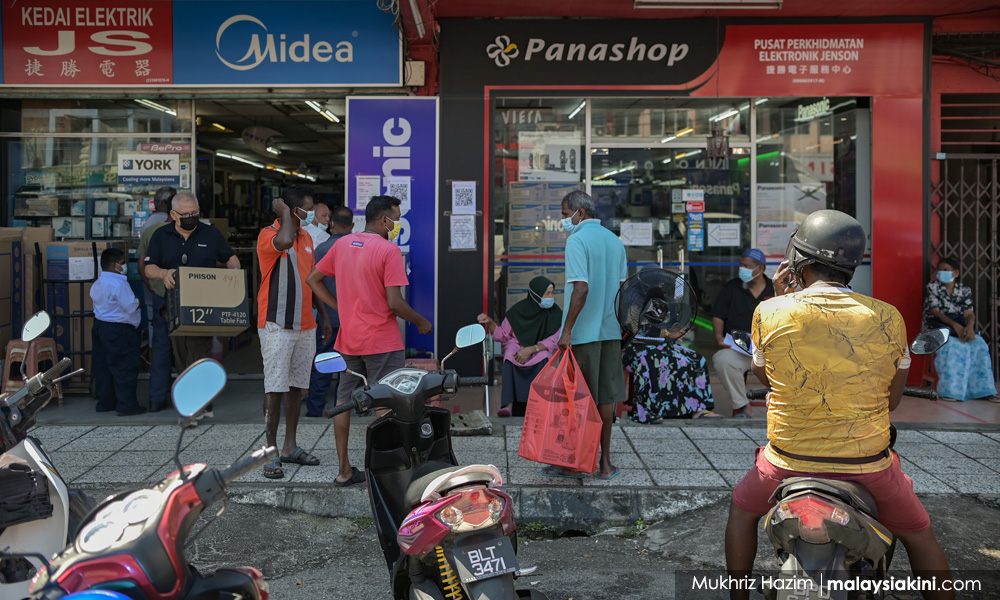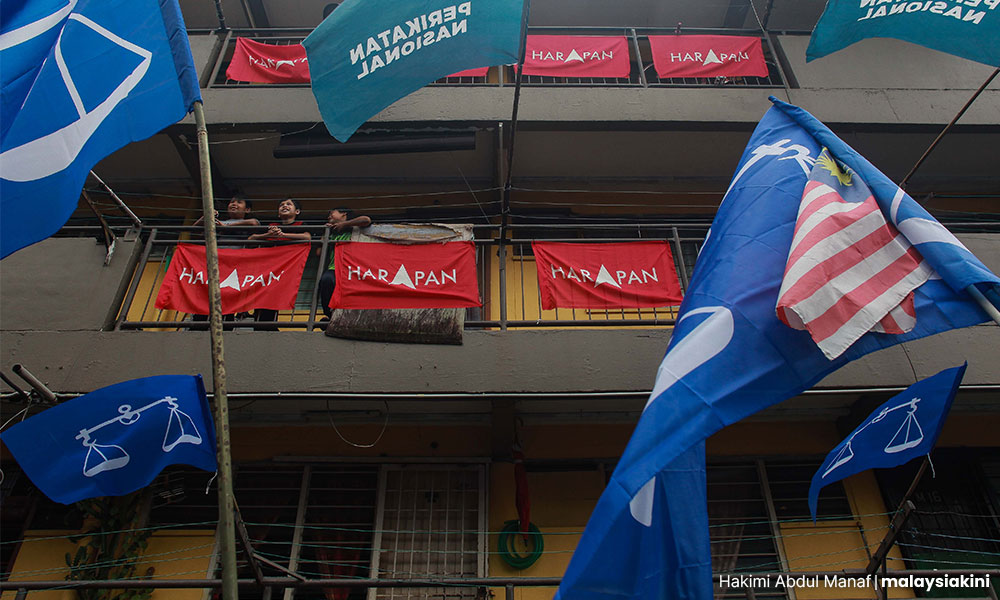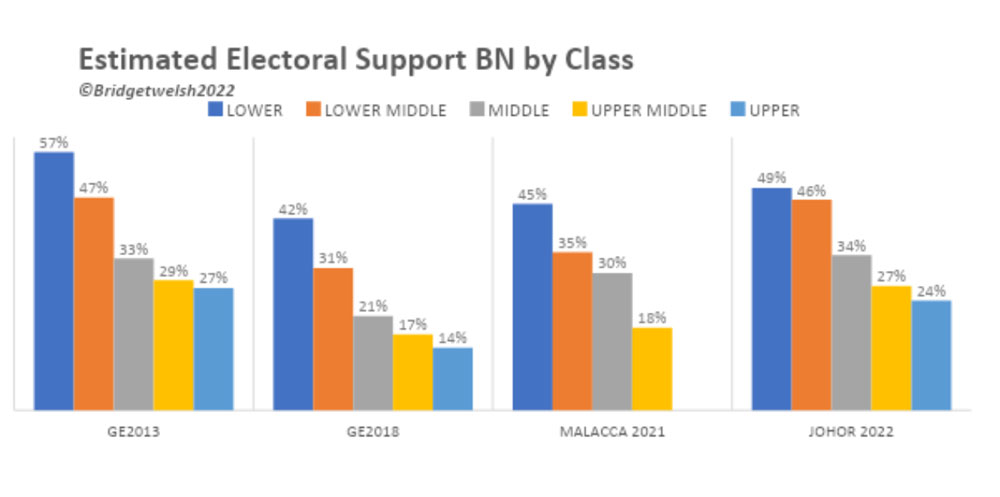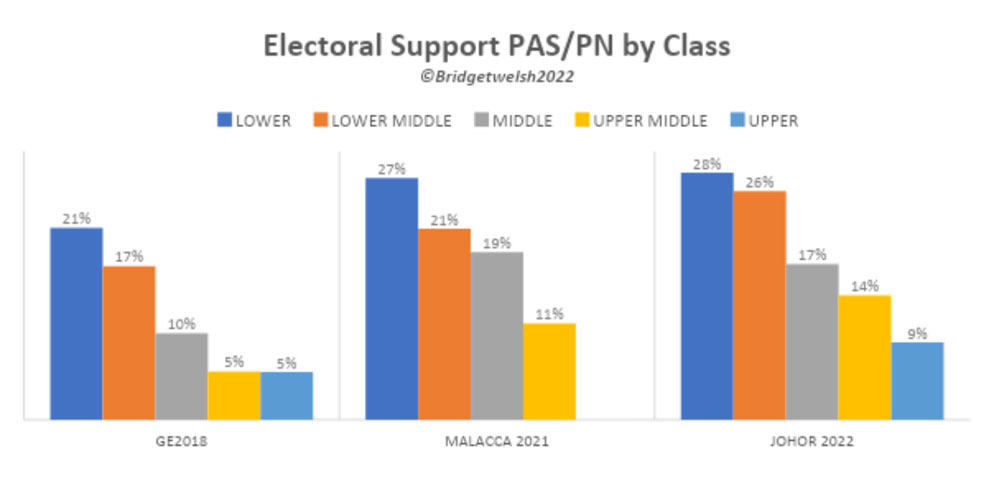Polling outfits are telling you that the 15th general election (GE15) will be a close race and that Malaysians are divided in the coming general election. They point to supposed greater public support for Malay dominance, syariah law, and conservative rule.
This sort of analysis misses the point. In fact, it completely misses the reality on the ground.
Malaysia’s GE15 is not about values. It is about vulnerability and the politicians who are capitalising on this vulnerability.
Post-Covid pain
Few appreciate how difficult the current situation is for more ordinary Malaysians compared to other recent elections. The prices of goods are shocking. Diets are changing, as some households just cannot afford to buy meat. For those who do not have their own trees, fruit is now a luxury good.
Housing loan payments are skyrocketing. The increase in the interest rates is really hurting those who are counting every ringgit. More cannot afford to pay their mortgage, least of all find the funds to buy property.
Wages have long stagnated. The political talk that wages will increase next year is just that, talk. The same studies find that the same increases will be negated by inflation.
There are concerns in some sectors of job cuts. Businesses in manufacturing and retail are already concerned that the global recession will spill over to Malaysia. The dark cloud over the global economy is already on the horizon.
Limited post-Covid recovery
There is a myth that Malaysians have recovered from the economic downturn induced by the Covid-19 pandemic. Many - too many - are still hurting. The official numbers show this.
In August, then deputy finance minister Mohd Shahar Abdullah reported that 3.2 million Employees’ Provident Fund (EPF) members under the age of 55 are at a very critical savings level of less than RM1,000. Among them, 81 percent are bumiputera.
This is only just one of many surveys showing that most Malaysians - most voters - have no meaningful savings and other forms of economic security.
Data shows that poverty has also increased; the number of poor households increased to 639,800 in 2020, up from 405,400 in 2019, according to the Department of Statistics. Data is unavailable since then, but the current situation on the ground is not promising.
While conditions may have improved for some with higher income as the economy has opened, those most disadvantaged have had fewer gains.
In short, Bank Negara’s recently released positive economic growth numbers do not translate to the lives of most ordinary citizens. These numbers reflect growth in sectors like manufacturing and agricultural exports that are not translating into genuine greater income for actual households.

There are particular groups that are especially hurting, large numbers of bumiputera voters in Borneo and in rural/semi-rural Malaysia, pensioners, single-headed households, and young people, who now comprise a larger share of overall voters.
These are the same groups that are being targeted in political outreach, especially by those in resource-rich coalitions, Perikatan Nasional (PN), and still funded but less financially liquid in this (non-1MDB funded) election, Umno/BN.
Critical lens of class voting
When one understands voting behaviour in Malaysia, the focus is on ethnicity, generation differences, or as stated in my recent piece, gender. Largely overlooked in analysis, but critical, is class. The social divide that matters, which is especially salient post-Covid, is one of socioeconomic standing.
The relative poverty of the poorest in Malaysia is being preyed on to garner support, ironically by the same political parties that have fostered a cash-transfer dependence rather than engage in a meaningful reform of the social safety net.
While many of the manifestos, including BN’s announcement of a potential universal basic income which shows promise, these measures have yet to materialise.
Campaigns in GE15 are working from a basis of targeted handouts. The reason there is no open regular ceramah by PN and BN is that many efforts of the campaign are organised around patronage and is gearing up for a last-minute push of resource delivery.
This is what happened in the Sabah, Malacca, and Johor state elections. However, it should be noted that the Umno/BN campaign in the Johor polls relied more on its record in government rather than last-minute distribution of resources and goodies.

Few appreciate that in GE14, there was an erosion of support for BN among the poorest segments of society that helped swing the balance of power in favour of a change of government. At that time, it was the poor implementation of the GST and the higher cost of living that drove greater opposition to Umno/BN.
Estimated electoral support among the most economically disadvantaged (those with household monthly incomes of RM3,000 or less) dropped by an estimated 15 percent. Those in the second-lowest bracket (monthly household incomes from RM3,000-RM6,000) dropped by an estimated 16 percent compared to support levels in 2013.
Keep in mind, GE14 compared to GE13 was less flush with 1MDB funds in its campaign.

Recent Covid-impacted state polls in 2021 and 2022 suggest support from those in lower-income brackets have started to come back to BN. This was also the case in Sabah 2020, the most Covid-impacted election. There were electoral gains in support for Umno/BN, especially in the second-lowest income bracket.
PN’s appeal to the neediest
The coalition that is most benefitting from the use of resources is Perikatan Nasional, comprised of both Bersatu and PAS. It is the coalition that is openly spending the most money in the GE15 campaign. It also spent the most money in Malacca and Johor.
The swing in support for PN among the most economically disadvantaged was evident, with gains of an estimated 6 percent and 7 percent among the lowest economic bracket in the Malacca and Johor polls respectively.

In fact, PN rests its core political support on those with lower incomes as it wins less support among wealthier voters. PN’s open use of funds in the campaign is working to its advantage, as did the connection between the coalition and the greater distribution of public funds during the height of the Covid-19 pandemic.
PN has portrayed itself as the protector of those most vulnerable in its provision of Covid-19 social assistance and cash transfers, an image that it still retains even as Umno/BN has taken over this role as the government.
Voters especially remember those who helped at the most difficult time they experienced during the height of the Covid-19 crisis.
Money matters
The use of money in campaigns varies across Malaysia, but this election is especially salient because the funds are arguably even more needed.
In interviews across Malaysia, in rural communities in Peninsular Malaysia, or in remote areas in Borneo, a theme is clear: voters are waiting for funds to come down.
The unspoken call is there – show me the money. Post-Covid Malaysia’s electoral outcome is more vulnerable to the influence of election vote buying than arguably ever before.
While the call to stop the use of phones to show how people voted in voting booths may modestly dent vote buying, the importance of this practice should not be underestimated.
Many Malaysians who are more cynical about the political process and are struggling to survive are fleeing not to safety, but to immediate relief, albeit temporary. They want something out of the election for their families, to offset the difficulties they are facing, and parties are preying on this need to their advantage more than ever.- Mkini
BRIDGET WELSH is an honorary research associate of the University of Nottingham, Malaysia’s Asia Research Institute (Unari). She is also a senior research associate at the Hu Fu Centre for East Asia Democratic Studies and a senior associate fellow of The Habibie Centre. Her writings can be found at bridgetwelsh.com.
The views expressed here are those of the author/contributor and do not necessarily represent the views of MMKtT.




No comments:
Post a Comment
Note: Only a member of this blog may post a comment.